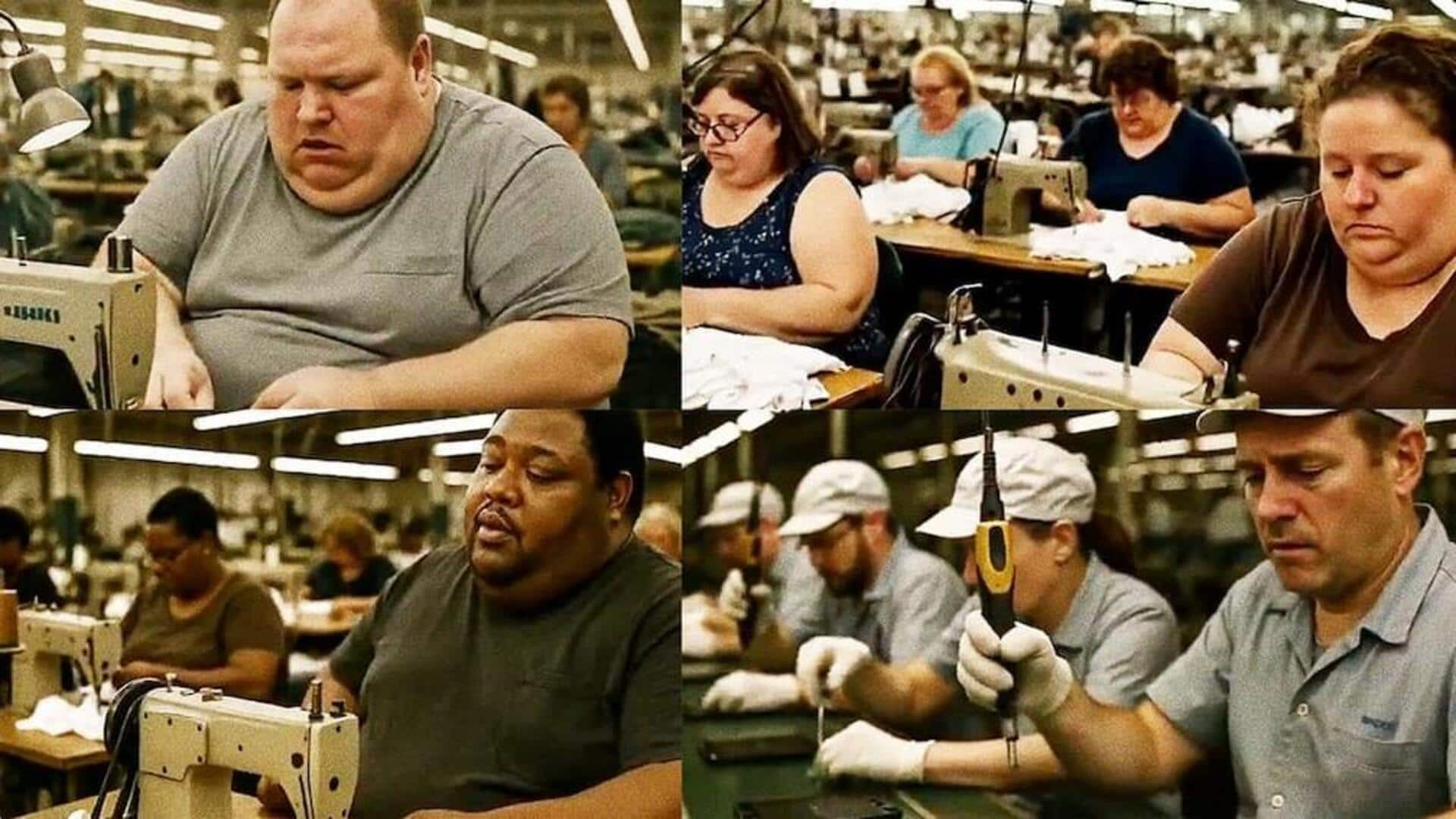
Watch: AI video mocking American workers as obese goes viral
What's the story
An AI-generated video has gone viral on Chinese social media, mocking US President Donald Trump's "reindustrialization" strategy to revive American factories.
The clip show Americans working in poor conditions, and has now leaked on Reddit and X as well.
The humor in the video comes from their depiction of the American workforce as overweight people struggling to adjust to factory work, which plays into existing stereotypes about obesity in the US.
Twitter Post
Take a look at the clip
Chinese memes on American re-industrialization rolling in. lol the music. 😂 pic.twitter.com/GZE2jHDgWZ
— Gabor Gurbacs (@gaborgurbacs) April 7, 2025
Shift in perception
Memes reflect changing attitudes amid US-China trade tensions
The Chinese video not only pokes fun at Trump's policies but also highlight a shift in attitudes as US-China relations deteriorate.
Historically, Americans have viewed their Chinese counterparts as mere factory workers producing low-cost goods.
However, the meme video reflects a changing narrative, as it highlights the potential consequences of Trump's plan to bring manufacturing jobs back home.
Concerns
Trump's policies face skepticism from experts
Despite Trump's faith that his policies will bring back US's manufacturing base by incentivizing companies to return, experts and economists are doubtful if this plan is even feasible.
They caution such measures could lead to inflation with rising prices.
To this end, the Chinese video has raised questions if America can easily rebuild its manufacturing base or convince workers to take low-paying factory jobs again.
Market reaction
Tariffs impact stock markets and trade relations
Trump's reciprocal tariffs in an escalating trade war with China have led to heavy losses in the stock markets.
Investors have taken to social media platforms to share memes about the development.
In light of the market downturn, Trump announced his administration is working on "tailored deals" with trading partners, prioritizing nations like Japan and South Korea.